What is dual diagnosis? A dual diagnosis means an individual has a substance-abuse issue and co-occurring mental illness. Often, one disorder or the other will be the most obvious, but typically one disorder leads to the other.
For example, an individual with a mental illness may start using substances to cope, or someone with a substance abuse issue may develop a mental illness over time. When these serious co-occurring conditions are present, dual diagnosis treatment is extremely important to successfully achieve recovery.
What is dual diagnosis treatment? Here’s what you should know.
Common Issues That Occur Together
Research indicates that around half of all people with severe mental illnesses are also affected by substance abuse. Certain mental illnesses and types of substance abuse are also most likely to be associated with dual diagnosis. For example:
- 47% of those with schizophrenia have substance abuse problems
- 37% of those addicted to alcohol have one or more serious mental health illnesses
- 61% of those with bipolar disorder (BD) struggle with a substance abuse issue
Other conditions that are most often co-occurring with a substance abuse disorder include posttraumatic stress disorder (PTSD), anxiety, depression, obsessive-compulsive disorder (OCD) and other personality disorders.
Some individuals are also more at risk than others for having a co-occurring mental illness and substance abuse disorder. Family health history, genetics and a history of trauma are all considered dual diagnosis risk factors.
Why Dual Diagnosis in Substance Abuse Occurs
Dual diagnosis occurs because one condition can easily lead to the other. Oftentimes, individuals who are struggling with mental illness turn to alcohol or illicit drugs in an effort to self-medicate. Some may even abuse medications they are prescribed to help control the symptoms of a mental illness.
On the same note, people who have a substance abuse problem can experience changes in brain chemistry that can lead to mental illness. For example, an individual who uses methamphetamine may experience depression after use, or a person who abuses opioids may experience anxiety after long-term abuse.
Signs and Symptoms of Co-Occurring Disorders
The signs and symptoms of substance abuse and mental illness can easily overlap. In fact, the symptoms can overlap so extensively that it can be difficult to discern which disorder is generating the symptoms in some cases.
For instance, an individual who suffers from depression may sleep more than usual, which could also be a symptom of substance abuse. Likewise, an individual with a substance abuse issue may portray illogical behaviors, but so can an individual with severe PTSD.
Some known signs and symptoms of co-occurring disorders include:
- Medication non-compliance
- Less likelihood of responding to treatment for one condition or the other
- Greater chances of substance abuse relapse
- Poor quality of relationships with friends and family
- Greater tendency to behave in a risky or violent way
- Greater likelihood of experiencing physical illnesses
- More frequent and more severe episodes of psychosis
When to Seek Help From a Dual Diagnosis Treatment Center
Not all individuals who have co-occurring disorders recognize two problems are at play in their lives. Therefore, it can be important for anyone who has either a mental illness or substance abuse issue to discuss a dual diagnosis with a professional.
However, if you have experienced any of the aforementioned signs and symptoms or often feel as though you are on a never-ending downward spiral, it is important to seek treatment as quickly as possible.
Effective Dual Diagnosis Treatment Methods
Dual diagnosis treatment is available in different therapeutic formats, all of which could be effective for the right individual. Program options may include:
- Residential or inpatient treatment programs (RTC)
- Partial hospitalization programs (PHP)
- Intensive outpatient programs (IOP)
Depending on the severity of symptoms, the personal goals of the individual and even the cost, certain types of programs are more suitable than others.
In addition to different types of dual diagnosis programs, different treatment methodologies may be used. The treatment or therapy methods may vary depending on the specific needs of the client, such as the specific substance used or the mental illness suspected. While all forms of rehab should be personalized to the client, dual diagnosis treatment requires an even more thorough intake evaluation to build the appropriate treatment plan. Treatment may include:
- Individual therapy
- Group therapy
- Family therapy
- Cognitive behavioral therapy (CBT)
- Medication management or medication-assisted treatment (MAT)
- Trauma or illness-specific therapy
Do You or a Loved One Need Dual Diagnosis Treatment?
When substance abuse and mental illness collide, finding the right program and specialized care is vital. At Vanguard Behavioral Health, we offer some of the top dual diagnosis treatment facilities in Albuquerque and Tucson. Our compassionate team is here to build a personalized care plan that works specifically for you as our client.
Ready to take the first steps toward a new way of life? Reach out for more information about our dual diagnosis treatment programs.








